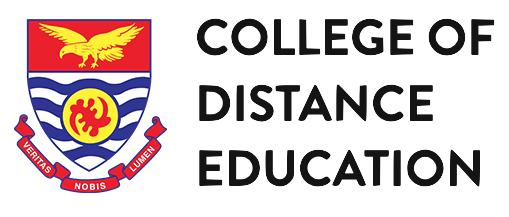MBA (FINANCE)
Programme Synopsis
Goal
The goal of the programme is to produce students with in-depth theoretical foundation and robust research skills in finance.
Objective
The objectives of the MBA (Finance) programme are to:
- develop the capacity of students to identify problems and develop alternative solutions to solve them;
- equip students with skills to identify and solve complex business problems; and
- enhance the analytic ability of students to apply finance theories, concepts, and strategies to formulate financial and investment policies.
WHAT CONTENT ARE AVAILABLE FOR LEARNERS?
Textbooks, slides, published articles, data files, and Open-source software are available. Learning materials are loaded unto the Open-source Moodle Learning Management System (LMS).
TEACHING/DELIVERY METHODOLOGY
The delivery is a blended approach of face-face and self-learning sessions.
STUDENT SUPPORT SERVICES
Support services available to students include facilitators for both face-to-face and online engagements, centre co-ordinators to provide administrative support, and Learning Management System to help students learn continuously.
CAREER PROSPECTS
Graduates from the MBA Finance programme are employable as manages, analysts, and researcher in both private and public banking and financial institutions. They are also strongly placed to be assigned higher roles in their current organisations. Graduates can also enrol on PhD studies for careers in academia.
WHO SHOULD ENROL ON THIS PROGRAMME?
The programme is suitable for entry-level and middle-level professionals, financial analysts, as well as researchers in the field of banking and finance. The MBA Finance is also suitable for individuals who aspire to take up these roles.
ELIGIBILITY
Graduates from a recognised University with Finance concentration or professional Finance qualifications (CFA, FRM, CFP, FWVA).
PROGRAM FEE
The MBA Finance costs GHS 8150 per year.
CERTIFICATE
On successful completion of the programme, the student would be awarded MBA degree in Finance by the University of Cape Coast.
ASSESSMENT & EXAMINATION
Candidates are assessed through presentations, assignments, and attendance/participation which constitute 40%. End-of-semester examination constitutes 60%.
PROGRAM STRUCTURE
The MBA Finance is by course work and research. It is normally done in two academic years of four semesters with a minimum credit load of 60.
|
SEMESTER 1 |
||
|
Course Code |
Title of Course |
Credits |
|
BUS 819D |
Statistics for Business Research |
3 |
|
BUS 813D |
Management and Organisational Behaviour |
3 |
|
BUS 817D |
Research Methods in Business |
3 |
|
BUS 802D |
Managerial Economics |
3 |
|
SEMESTER 2 |
||
|
FIN 801D |
Financial Management |
3 |
|
BUS 801D |
Legal Environment of Business |
3 |
|
BUS 809D |
Management Information Systems |
3 |
|
BUS 805D |
Accounting and Finance for Managers |
3 |
|
FIN 806D |
Financial Markets & Institutions |
3 |
|
SEMESTER 3 |
||
|
FIN 801D |
Financial Management |
3 |
|
BUS 801D |
Legal Environment of Business |
3 |
|
BUS 809D |
Management Information Systems |
3 |
|
BUS 805D |
Accounting and Finance for Managers |
3 |
|
FIN 806D |
Financial Markets & Institutions |
3 |
|
SEMESTER 4 |
||
|
FIN 899 |
Research Work |
|
